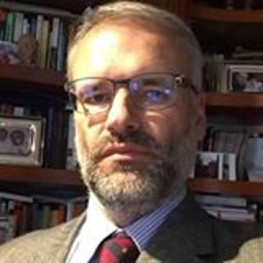
Piero Dominici
, Ph.D.
Director (Scientific Listening), Global Listening Centre.
Prof. : University of Perugia, Italy.
GLOBAL LISTENING CENTRE
Dr Piero Dominici, Professor and professional tutor, teaches Public Communication and National Interest & Intelligence Operations at the University of Perugia, and is Visiting professor at Complutense University of Madrid. He has a Ph.D. in “Social Theory and Research“ at the University of Rome “La Sapienza” (Rating:EXCELLENT) and, in the past, he won a Post-Doc Fellowships at the Department of Mechanical and Industrial Engineering of the University of Roma Tre.Member of the MUIR Association of Revisers, (Italian Ministry of Higher Education and Research), and of the WCSA (World Complexity Science Academy), he is also standing member of several of the most prestigious national and international scientific committees, among whichthe Scientific Committee for orientation of the Italian Association of Public and Institutional Communication (national network of communication professionals and experts), as well as the International Scientific Board Of Communication and Media Research Center, and the Editorial Board of the International Journal of Political Science & Diplomacy.
Dr Piero has taught and carried out research at a number of national and international universities and has been working in the field of complexity and systems theory, focusing in particular on complex organizations and on topics regarding innovation, citizenship, democracy and public ethics, for twenty years. He currently performs activities of research, education and consulting for public and private organizations, and has coordinated projects of national and international renown. Dr Piero has passion for Listening and believes effective Listening boosts work quality and productivity. He is a regular speaker at international conferences and a collaborator for cultural and scientific journals.
Author of numerous essays, scientific articles and books, his published works include: Perun’eticadei new-media [Ethics for the new media] (1998);La comunicazione nellasocietàipercomplessa. Istanze per l’agire comunicativo [Communication in the Hypercomplex Society. Solicitations for CommunicativeAction (2005);La società dell’irresponsabilità [The Society of Irresponsibility] (2010);La comunicazione nella società ipercomplessa. Condividere la conoscenza per governare il mutamento[Communication in the Hypercomplex Society. Sharing Knowledge to Cope with Change] (2011);Dentro la Società interconnessa. Prospettive etiche per un nuovo ecosistema della comunicazione [Inside the interconnected society. Ethical Prospect for a New Ecosystem of Communication] (2014);Democracy and the Public Sphere in the Knowledge Society: the strategic Function of Communication. in:R.Kincal, Democracy and Democracy Education in Europe.. p. 122-135, Istanbul:Nobel AkademikYayınDağıtım Tic. Ltd; Sfera pubblica e società della conoscenza[Public Sphere and Knowledge Society] in AA.VV.(a cura di), Oltre l’individualismo. Comunicazione, nuovi diritti e capitale sociale, Franco Angeli, 2008; Communication and Social Production of Knowledge. A new contract for the Society of Individuals, in «Comunicazioni Sociali», n°1/2015, Vita & Pensiero, Milano 2015; Tra sicurezza e libertà, tra controllo e cooperazione. Nuovo ecosistema della comunicazione e terrorismo[Of Security and Liberty, of Control and Cooperation. The New Ecosystem of Communication and Terrorism] in U. Conti, (comp.), Elementi per una sociologia del terrorismo. Temi e strumenti di ricerca. Rubbettino, Soveria Mannelli, 2016; La filosofia come “dispositivo” di risposta alla società asimmetrica e ipercomplessa [Philosophyas a “Device” for Reactingto theAsymmetrical and Hypercomplex Society] in Dominici Piero, et al., Il diritto alla filosofia. Quale filosofia nel terzo millennio?,Diogene Multimedia, Bologna 2016; [Post-Humanist Utopia and the Search for a New Humanism in the Hypercomplex Society] in «Comunicazioni Sociali», n°3/2016, Vita & Pensiero, Milano 2016.
